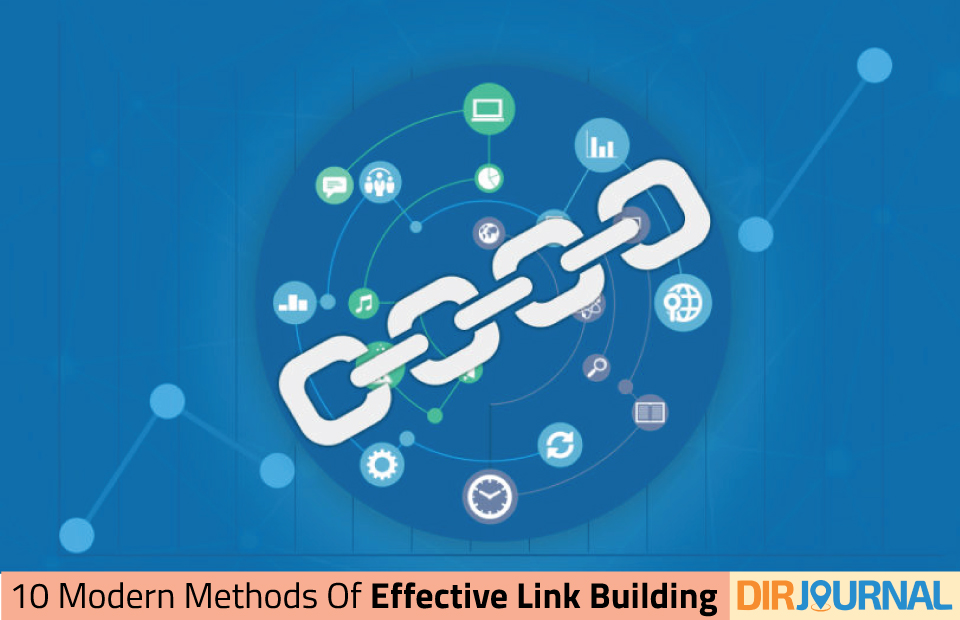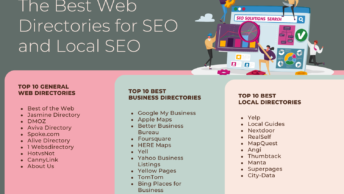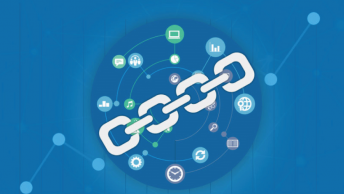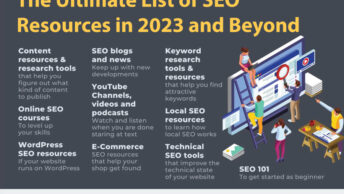To be sure that you’ve arrived at the right place in looking for ‘Modern Methods’ of ‘Effective Link Building’, it may be appropriate to define our terms. Modern here refers to Internet time, which as many can attest goes exceedingly fast. Not surprisingly, Search Engine Land has a regular weekly column entitled Link Week to document the ever changing scene. Given that, what is Effective Link Building and what is it trying to achieve.
Many may feel it’s all about Google and trying to get higher rankings in keyword searches. How then would Google define Effective Link Building? Google’s advice to webmasters is very straightforward or some might think it’s naïve. Here is what they say:
Make sure that other sites link to yours
Links help our crawlers find your site and can give your site greater visibility in our search results. When returning results for a search, Google uses sophisticated text-matching techniques to display pages that are both important and relevant to each search.
…
Keep in mind that our algorithms can distinguish natural links from unnatural links. Natural links to your site develop as part of the dynamic nature of the web when other sites find your content valuable and think it would be helpful for their visitors. Only natural links are useful for the indexing and ranking of your site. Unnatural links to your site are placed there specifically to make your site look more popular to search engines. Some of these types of links (such as link schemes and doorway pages) are covered in our Webmaster Guidelines.

Even though the vast majority of websites now get less traffic from Google than they used to get, Google Search is still an important source of visitor traffic. It is therefore appropriate to take the actions that could increase that traffic, which includes the addition of ‘natural’ links from authoritative websites.
Perhaps Google Search Is Less Important For Website Traffic
Anyone who keeps a watch on what is going on in the (Google) Search world will be aware that Google is beginning to show its true character. Google is now a public company whose principal revenue is through paid advertising. Although it keeps up the fiction that its mission is organizing the total information in the world and providing that to people through Search, as Danny Sullivan has pointed out no one in Google is now responsible for Search. Its actions may sometimes appear to be taken for other reasons but maximizing its Adword ad revenues is the main game.
Look at a current Google SERP (Search Engine Report Page) and observe how much on what appears on the screen (above the fold) is either Google information or Google Adwords ads. This has been acerbated by the latest Google algorithm update, Hummingbird. This is sold as a way of better responding to the way people really want to have their queries answered, particularly if they’re using Google Voice Search. That is true but at the same time it has made it possible for Google to provide more complex answers without showing other websites that may be the source of the information. This uses the Knowledge Graph, a knowledge base used by Google, which includes semantic-search information gathered from a wide variety of sources.
Social Media Can Generate Website Traffic
Since Google is providing less visitor traffic to websites, other channels must be used. Fortunately we now have social media such as Facebook, Twitter, Pinterest and many others that people spend a great deal of time on. By having a visible presence on such social media, you can be sure that some of those on the social media site will visit your own website. Such website visitors have arrived quite independent of any Google property.
This has created a dilemma for the search engines. They wish to present the most relevant answers to search queries. A few years back this process was fueled entirely by the structure of links on the Web. It did not take account of how humans were making choices of what was most relevant to them. Now there is a great deal of traffic through social media sites that is the best possible indication of how people view the relevance and attraction of particular web pages. It is quite clear that search engines such as Google are taking such traffic data into account.
NoFollow Links Can Be Worthwhile And Effective
Links from social media sites are invariably ‘nofollow’ links. In other words, the hyperlink includes the attribute rel=”nofollow”. Essentially, using nofollow causes Google to drop these target links from their overall graph of the web. In other words, the nofollow attribute removes these links from the Google calculation of PageRank, which is one of the over 100 factors taken into account in determining relevance. That is the message that Google has been giving for many years. Relevant answers are determined purely by the overall link graph, at least for all those links that do not bear the ‘nofollow’ attribute. What that means is that answers would be purely mechanical and would not be influenced by how humans react to what they are seeing.
It is now fairly clear that search results are also influenced by social signals, the actions of humans in response to what they see. Indeed Google itself has entered this field with its Google Plus website. From all this, it seems clear that effective link-building is not just about links that do not have the ‘nofollow’ attribute but should include all links and particularly those that can generate significant visitor traffic.
10 Modern Methods Of Effective Link Building
Given the above discussion, it is clear that social media NoFollow links are worth some effort. Getting links of any kind takes time. In consequence, it’s a question of where should you put your effort. The following list suggests how you should set your priorities in generating or gaining links to your online properties:
1. Strengthen your personal Internet visibility
- Develop your Google author credibility
- Develop your social media networks
For links not identified as NoFollow
2. Develop content that is worthy of links from authoritative websites
3. Be generous in linking out to other authoritative websites
4. Guest post on authoritative websites
5. Comment on posts on authoritative websites
6. Strengthen your social media networks
- Interact with your social media circles on a frequent basis
- Participate in forums and online discussions
For links identified as NoFollow
7. Develop social media links through your profiles and pages
8. Put special emphasis on image based social media such as Pinterest, Youtube, Instagram. Etc.
9. Encourage sharing of links among social media contacts, (retweeting, etc.)
10. Don’t forget the traditional secondary link-building actions if time permits
- Submit to directories (included for old time’s sake)
- Optimize your internal website links
Conclusion
If you do all the above in an appropriate manner, you should not run afoul of any Google penalties for spammy link profiles. That’s an important final word of caution to add, since it is not at all clear that you can fully recover by disavowing unnatural links.
Image credits:
- natural web image courtesy of http://pixabay.com/en/cobweb-morgentau-dew-dewdrop-drip-4193/
- link space image courtesy of http://pixabay.com/en/ball-about-star-braid-texture-209410/







Those are great tips for link building. It is so important to add the human element into the equation. Thanks for the info.
Thanx for the article 🙂
Linkbuilding is like life blood for SEO campaign but with the introduction of Penguin, Panda and latest Hummingbird algorithm update, it is very necessary to be careful about linkbuilding. From the latest SEO techniques your methods are pretty good for building quality backlinks and get top position in search engines. Its time to think about organic ways of linkbuilding and get organic position.
Great article, I think the internet is moving at such a rapid rate that what seemed impossible a few years back will surely become a reality soon. That is the tight grip that Google had (still does to a lesser degree) on overall internet traffic. Social media and hopefully other innovation will make websites/webmasters free to create great content independent of Google’s dictate. Traffic can not be held hostage to one entity no matter who it is.